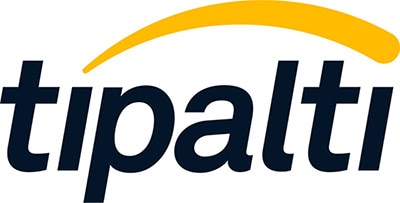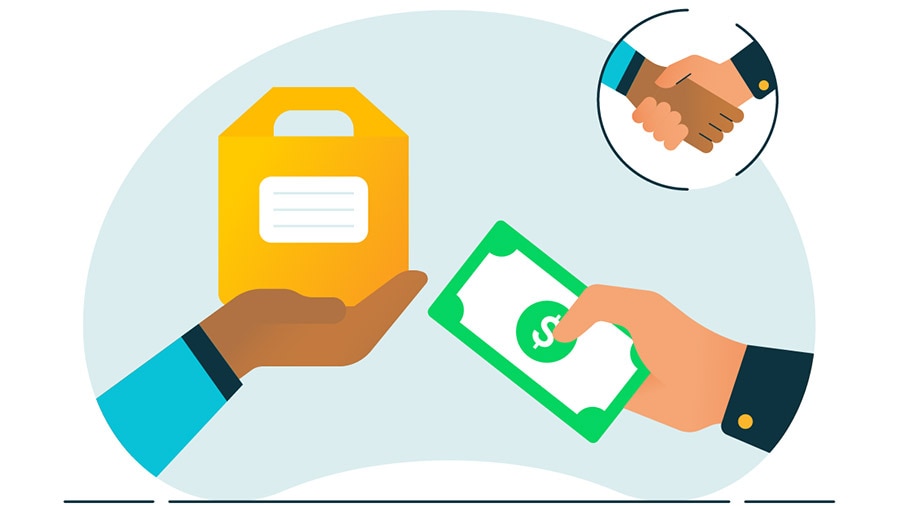As the threat of a recession looms over the economic landscape, in addition to a desire to grow and scale in a fast-changing market, CFOs are focused on boosting efficiencies, strengthening controls over corporate spend, and increasing finance visibility throughout their organizations.
Today’s strategy-driven CFOs are looking at automation technology, specifically integrated ERP add-ons with accounts payable capabilities, to streamline their reconciliation process and increase the availability and hygiene of real-time data. While ERP solutions, like QuickBooks, offer basic accounts payable capabilities, they still require manual input to complete accounts payable processes successfully.
Given the manual nature of accounts payable (AP) processes, it’s no secret that most AP-related tasks are time-consuming, plagued with inefficiencies, and prone to human error. These antiquated processes result in dirty data and additional time and money spent fixing mistakes.
Additionally, manual tasks hinder accessibility to accurate real-time data due to the time it takes for the information to be readily available after being initially submitted and then keyed in, in addition to any errors that might have slipped by the finance team.
Take something like month-end close, for example. The sheer amount of data handled manually can be tremendous. These manual-based tasks can take days—even weeks in extreme cases—to complete, and that's not accounting for the potential of human error. The slightest mistake or typo can have significant consequences, not only taking more time to amend but also costing you money and potentially damaging your reputation with suppliers and potential partners.
With finance team members’ schedules being backfilled with mundane manual tasks, they don’t have the time or resources for much else. An automated accounts payable solution can complete something like month-end close in a matter of hours instead of days, giving team members more time to focus on value-adding initiatives like strategic planning.
This increase in efficiency means less dependency on headcount to fulfill manual tasks and faster availability of data.
The power of automation
Automation can be a powerful tool for maximizing the capabilities of QuickBooks. By automating payment workflows and processes, you can let the machines do the heavy lifting, so to speak.
The options are practically endless when it comes to automating your payment workflows. From supplier-initiated payment capabilities to scheduled pay windows, automated tax form generation, KYC fraud and OFAC screenings, automated PO matching, and international payment options, you can build robust, reliable, and secure payment workflows powered by automation technology.
There are also automation-boosting tools like AI, BI, optical character recognition, and machine learning. With these innovative solutions in place, your finance function will only improve over time as they gain a better understanding of your company’s rules, workflows, and processes.
Maximizing the functionality of QuickBooks through app add-ons
To combat the inefficiencies surrounding accounts payable, strategy-driven CFOs and finance professionals are looking at third-party developers for solutions that can directly tie in with their tech stack to automate as many manual processes as possible.
QuickBooks allows its customers to extend the capabilities and functionality of their offerings by directly integrating with applications developed by third-party software companies and developers like Tipalti, which provides directly integrated end-to-end accounts payable automation tools.
These apps help further automate processes and implement scalable procedures for high-growth businesses.
Popular categories to automate include:
- Accounts Payable (AP)
- Expense Management
- Tax Preparation
- Funding
- Customer Relationship Management (CRM) Software/Solution
Businesses at all stages of growth can benefit tremendously from end-to-end automation by using directly integrated apps. These solutions eliminate the need to duplicate data across different systems and minimize the risk of human error by removing the human element from these processes.
Streamline processes and increase efficiencies with AP automation tools
While QuickBooks is fully capable of settling supplier invoices as is, businesses paying fifty or more monthly invoices will likely face bottlenecks given that their entire payables life cycle lacks any automated payment workflows.
QuickBooks can extract data from supplier invoices, but finance teams still need to chase down decision-makers for approvals and manually input data across multiple banking portals, systems, and software. Businesses with a global reach may also need to manage multiple international subsidiaries and their related systems to facilitate payments to international suppliers.
Managing numerous manual processes across multiple systems and back-ends is time-consuming and can be problematic for scaling companies, given the need to hire additional finance headcount to fulfill requirements and potentially correct errors generated from manually entered data. Unfortunately, however, adding more staff does not usually fix the problem. It can even have an adverse effect by increasing operational costs and maximizing the potential for even more human errors to arise.
Depending on your choice of automation technology, the solution can even be programmed to find anomalies and unusual activities, making detecting and identifying fraud much easier. It also helps in reducing the number of legitimate transactions flagged as fraudulent. Even mundane day-to-day tasks can be automated, like PO-matching invoices, onboarding new suppliers, employee reimbursements, and purchase approvals.
Automation has been shown to improve finance productivity and efficiency. One survey found that 44% of employees said automation saves time, while 43% feel that automation enables them to close out tasks faster. With all the benefits of automation technology, businesses often see a 15% annual increase in revenue. The investment is minimal when compared to the gains experienced overall.
With the current economic outlook, CFOs and finance leaders are focused on keeping their teams lean and headcount at a minimum. An integrated end-to-end automation solution can encourage those efficiencies by allowing minimal staff to manage the entire AP lifecycle from a single sign-in destination.
International expansion
Another benefit of incorporating AP automation tools is the reduced friction and cost of expanding internationally.
AP automation facilitated by directly integrated applications within QuickBooks enables businesses to transact with a wide range of global payment methods, including Global ACH, wire transfers, eCheck, SEPA, EFT, and PayPal, in addition to local currencies. Leading automation solutions, like the one offered by Tipalti, allows businesses to transact with 196 countries and 120 local currencies, all from one centralized dashboard.
Strengthening business relationships via automation
While greater efficiency and accuracy are reason enough to incorporate workflow automation into your financial processes, these technologies hold the potential to improve many other aspects of the finance function.
For example, some payment automation solutions like Tipalti offer self-serve capabilities, allowing vendors and suppliers to onboard themselves, input their own payment or banking information, and choose their preferred payment methods. This also gives them more visibility and control over invoicing and upcoming payments. That same functionality can also help minimize the potential for late payments due to a substantial reduction in human error and automated pre-scheduled payment windows.
All these solutions help strengthen relationships with suppliers by providing them with a streamlined experience while reducing friction-filled communication regarding payment statuses. It’s a win/win situation.
Strategic finance powered by automation
While automation technologies can have a different impact on each company, there's one advantage they all share; Automation can reposition the finance function within your business, moving it from more operational and administrative to being more strategic.
All the time saved by automating processes allows finance teams to focus on additional value-adding activities. The technology also enables finance teams to turn real-time data into valuable insights that can improve the finance function and other departments throughout the company.
It doesn’t stop with the finance team, either. Process automation allows CFOs to reposition their roles as more strategic within the company. Strategy-oriented CFOs who fully embrace technology and automation have found themselves taking on additional responsibilities, being a bigger part of the decision-making process, and executing strategies that reach beyond the finance function. You can even find them involved with strategic decisions around HR and IT.
The new finance function
Today's business environment has made finance even more critical to a company’s success.
CFOs and their finance teams are now tasked with transforming the finance department into a function that does more than merely handle a company's cash flow. It prioritizes business objectives and arrives at strategies that can overcome challenges and maximize market value—both in the short-term and the long-term. Automation technology paves the way for such efforts.
About Tipalti
Tipalti is a payment automation software that helps businesses manage their entire supplier payments operations by streamlining all phases of the accounts payable and payment management workflow in one holistic cloud platform.
Click here to learn more about how Tipalti extends the functionality of QuickBooks Online with payment automation.














